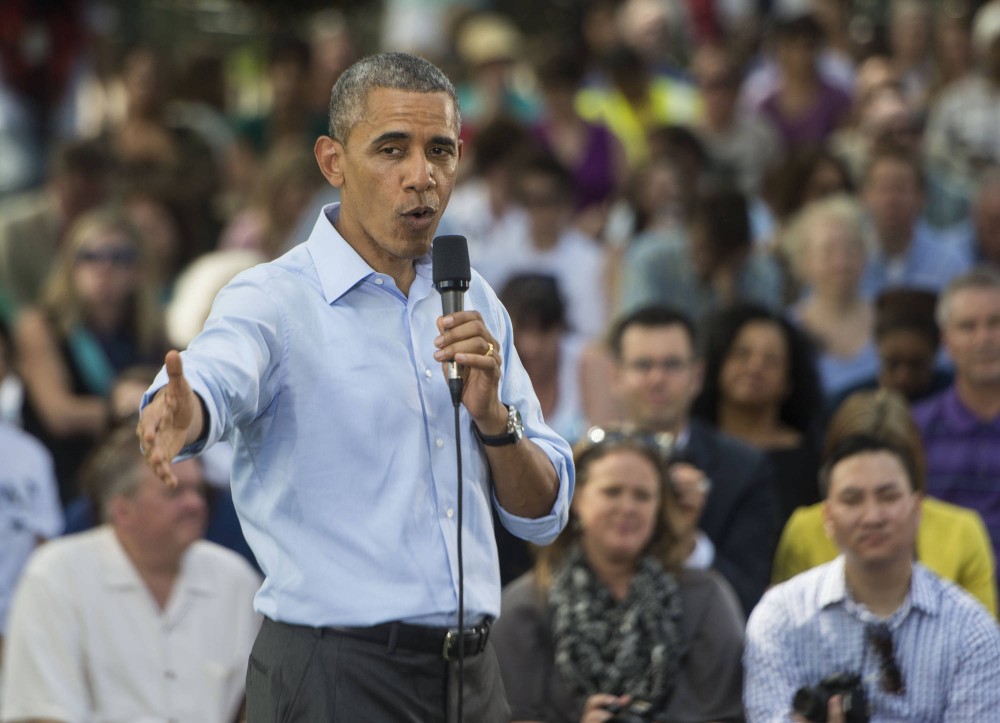As the Barack Obama administration neared its end, it issued one last set of guidelines for higher education administrators to consider in addressing sexual assault.
The letter — part of the Obama administration’s push for colleges and universities to take aggressive action — encouraged schools to continue to aggressively work to stem sexual assault on campuses.
At the University of Minnesota, most of the new recommendations have been implemented or are in progress.
While the previous administration emphasized addressing sexual assault on college campuses, the stance of President Donald Trump’s administration on the previous administration’s Title IX expansion remains unknown, worrying some advocates.
“A Call to Action”
The letter from former Vice President Joe Biden included a White House task force’s guide with 92 specific recommendations for handling sexual assault.
The University of Minnesota has implemented almost all of the recommendations outlined in the letter, said Aurora Center Director Katie Eichele.
Many of the services recommended in the letter are provided by the Aurora Center, like a full-time advocate and counseling services for victim-survivors, among others. Others, like employing a full-time Title IX coordinator or starting awareness campaigns, have been undertaken by University administration and student government.
Still, there are some recommendations the University hasn’t met yet, Eichele said.
The Aurora Center is cooperating with the Minneapolis and St. Paul police departments to establish a memorandum of understanding to clarify the roles and responsibilities of all involved parties in dealing with sexual assault, as recommended by the 2017 letter.
Additionally, the letter suggests that education and training programs should be ongoing and reinforced throughout a student’s academic career. Currently, the University meets state law by requiring students to complete sexual awareness training within the first 10 days of their first semester.
Still, the Aurora Center is working to provide additional information tailored to various campus groups, Eichele said.
“You have to have those communities buy in. That’s how you create culture change, and then you design programming and involvement around the needs of specific audiences,” she said.
After reading the letter and guidelines, Eichele said the University has come a long way.
The future of Title IX
The Obama administration’s interest in addressing campus sexual assault dates back to a 2011 a “Dear Colleague” letter from the Office for Civil Rights, which specified that language in Title IX prohibiting gender-based discrimination in any educational activities receiving federal funds also covered sexual violence.
Among other recommendations, controversial portions of the letter suggested schools employ a preponderance of evidence standard for sexual misconduct cases and discouraged cross-examination during hearings.
But with recent congressional confirmation hearings for Betsy DeVos, President Trump’s pick for education secretary, questions have been raised over the administration’s desire to uphold the previous one’s actions after DeVos declined to take a stance on Title IX enforcement during her Jan. 17 Senate hearing.
Some, like Patricia H. Davis, an attorney at Dallas law firm Farrow-Gillespie & Heath, worry some of the drastic changes achieved by the 2011 guidance could be altered or reversed by the new administration.
For example, DeVos may shift the preponderance of evidence to a higher standard.
A more concerning possibility is that the Trump administration could defund enforcement, Davis said. Over 360 investigations were started in the Office of Civil Rights under Obama, and only 58 have been resolved, she said.
“People are hoping … that she’s not going to cancel those investigations,” Davis said. “But what she might do is say, ‘We are not going to open any new investigations.’”
Some Democratic Senate lawmakers on the committee charged with voting on DeVos have also raised concerns about her unwillingness to commit to existing Title IX enforcement practices.
“Victims of sexual assault deserve a Secretary who will stand up for them, not one unwilling to commit to enforcing basic protections,” committee member Sen. Bob Casey, D-Pennsylvania., tweeted after the hearing.
Concerned about reversing strides made in stemming campus sexual assault, Casey and ranking Democratic member of the committee, Sen. Patty Murray, D-Washington, encouraged Trump to maintain current policies in a Jan. 5 letter.
“We have made some progress in addressing campus sexual assault in the last several years,” the letter read. “It is critically important that these policies remain in effect in order to protect students from sexual violence and promote healthy learning communities.”
LGBTQ students, however, may have a harder time under a DeVos-headed education department, Davis said, given her questionable history. DeVos’ family has been linked to an anti-LGBTQ organization in the past, though DeVos said she doesn’t support the group’s work during the Senate hearing.
Laws protecting LGBTQ students aren’t as developed, and students advocating on behalf of LGBTQ issues haven’t reached the same fervor as those speaking out against sexual assault, she said.
“I would just encourage students at the University of Minnesota to consider how much these rights mean to them … If it means a lot to be safe and to have equity for your transgender and LGBT peers, then it may come to the point where you need to organize and advocate in a strong way,” Davis said.
But other organizations, like the non-partisan, non-profit Foundation for Individual Rights in Education, has been critical of portions of Title IX and is concerned the directives have contributed to a potential lack of due process in campus adjudications.
FIRE sponsored a lawsuit last year challenging the 2011 directives.
While FIRE Vice President of Policy Research Samantha Harris said she can’t predict how the new administration will handle Title IX enforcement, she’d like to see the government reverse some of its requirements, especially its “preponderance of evidence standard.”
She said a more appropriate standard in campus sexual misconduct adjudications would be a “clear and convincing evidence” standard, which is between preponderance and “beyond a reasonable doubt”
“We are just asking that the government back away from that mandate and from its … aggressive micromanagement of school judicial systems through Title IX enforcement,” Harris said.

















